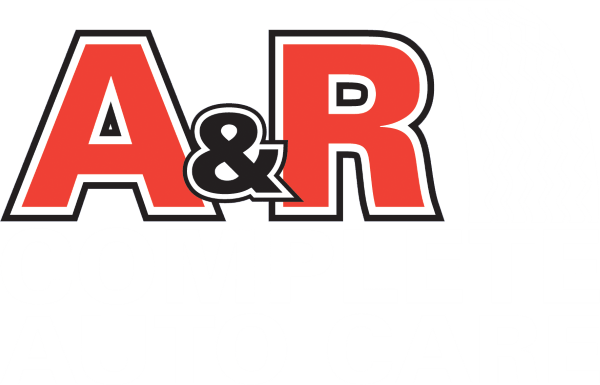FAMILY OWNED & OPERATED SINCE 2009
Fort Campbell Location
Warfield Location
Mon-Fri: 7:30am-5:30pm
Sat-Sun: Closed
Save Money on Gas! How to Improve Fuel Efficiency

With rising fuel prices, every driver is looking for ways to stretch their gas mileage. Whether you're commuting daily or planning a road trip, improving your car's fuel efficiency can save you money and reduce your environmental impact. Here are some simple but effective tips to help you maximize fuel efficiency and get the most out of every gallon.
1. Keep Your Tires Properly Inflated
Underinflated tires can significantly decrease your fuel efficiency. When tires aren’t at the recommended pressure, they create more resistance on the road, causing your engine to work harder and burn more fuel. Check your tire pressure regularly—especially before long drives—and keep them inflated to the manufacturer’s recommendations.
2. Regular Maintenance
A well-maintained car is a fuel-efficient car. Regular oil changes, replacing air filters, and keeping your engine tuned up will improve overall performance and fuel economy. Dirty air filters can reduce airflow to the engine, causing it to work harder and use more fuel, while old oil can lead to inefficient engine performance.
- Oil Changes: Fresh oil reduces friction in your engine, allowing it to run more smoothly and efficiently. Old, dirty oil forces the engine to work harder, which burns more fuel. Stick to the recommended oil change intervals for your vehicle to maintain optimal performance.
- Air Filter Replacement: A clogged or dirty air filter restricts airflow to the engine, which can lead to reduced fuel efficiency. Replacing the air filter as recommended allows for better air circulation, improving engine performance and fuel economy.
- Spark Plug Inspection: Worn-out spark plugs can lead to misfires, poor acceleration, and reduced fuel efficiency. Regularly inspecting and replacing spark plugs ensures that your engine is firing efficiently, conserving fuel in the process.
- Fuel System Cleaning: Over time, dirt and debris can build up in your fuel system, reducing its efficiency. A fuel system cleaning can remove these contaminants, helping your engine use fuel more effectively.
- Alignment and Suspension: Poor alignment or suspension issues can cause uneven tire wear and increased rolling resistance, reducing fuel efficiency. Regularly checking and correcting alignment will help your vehicle roll more easily, improving both handling and gas mileage.
3. Lighten Your Load
Carrying excess weight can drag down your fuel efficiency. Remove any unnecessary items from your car, and avoid using roof racks or carriers unless you absolutely need them. The lighter your vehicle, the less fuel it will need to move.
4. Drive Smoothly
Aggressive driving—speeding, rapid acceleration, and hard braking—wastes fuel. By adopting a smoother driving style, you can save more at the pump. Try to anticipate traffic conditions, maintain a steady speed, and avoid unnecessary braking or accelerating. Cruise control on highways can help maintain a consistent speed, further improving fuel economy.
5. Limit Idle Time
Idling consumes more fuel than you might think. If you're stopped for more than a minute or two, it's better to turn off the engine than to let it run. Modern vehicles don’t need to "warm up" for extended periods, so if you're waiting, turn off your car to save gas.
6. Use Air Conditioning Wisely
Running your air conditioner puts extra strain on your engine, which can decrease fuel efficiency. Use it sparingly, and consider rolling down your windows at lower speeds to keep cool. However, at highway speeds, having the windows down can create drag, so it’s more efficient to use air conditioning.
7. Plan Your Routes
Combining errands into one trip and choosing the most efficient route can help reduce the amount of driving you do. Try to avoid congested areas and peak traffic times when stop-and-go driving can lead to increased fuel consumption. Use GPS apps to find the quickest, traffic-free routes.
8. Watch Your Speed
Driving at higher speeds, especially over 60 mph, can significantly reduce fuel efficiency. The faster you go, the more fuel your car uses to overcome air resistance. Staying within the speed limit can not only improve fuel economy but also help you avoid speeding tickets!
Save Money, Drive Happy
Improving your car’s fuel efficiency doesn’t require major changes—just a few simple adjustments can go a long way. Keeping up with maintenance, adopting smoother driving habits, and lightening your car’s load can all contribute to better gas mileage and save you money at the pump. Implement these tips, and you’ll notice the difference in your fuel costs, as well as your car’s overall performance!
HOME OF THE TOP-RATED REPAIR SHOP
Our customer-focused team welcomes each of our customers home with each visit. We are always ready to give honest and practical recommendations for all of your service, repairs and scheduled maintenance needs. Whether you drive a new car or a trusted older model, our friendly and polite team is eager to welcome you home.
Fort Campbell
Mon-Fri: 7:30am-5:30pm
Sat-Sun: Closed
Warfield
Mon-Fri: 7:30am-5:30pm
Sat-Sun: Closed
Quick Links
FORT CAMPBELL
Mon-Fri: 7:30am-5:30pm
Sat-Sun: Closed
WARFIELD
Mon-Fri: 7:30am-5:30pm
Sat-Sun: Closed
A&R Complete Auto Care
A&R Complete Auto Care
Privacy Policy | Accessibility Statement



